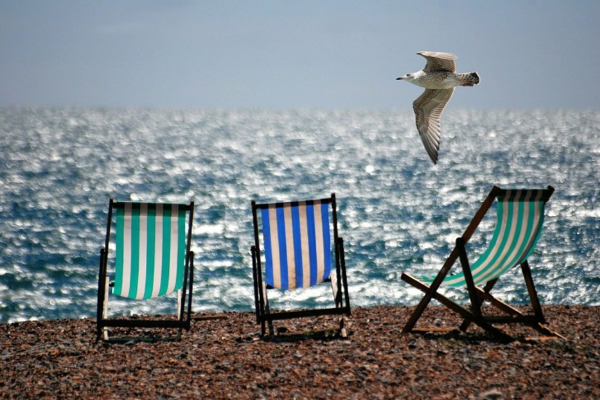Most people go on holiday to relax and try something new; whether it be culture, food, history, climate, or adventure, but trips abroad often come at a high price and with a considerable degree of faff.
If what you’re after is some well-deserved rest and relaxation, then you may well be disappointed. Picture this: you’re going to Sotogrande for a long weekend. What do you need to organise? Well, firstly you need flights and in quintessentially British form you’ve been putting off booking for months in the hope that pigs will fly and the price will suddenly drop £100 for absolutely no reason. They don’t, so you bite the bullet and fork out an eye-watering amount on a flight leaving at an inhumane time in the morning which you can safely assume will have ‘catering issues’ so there will be no hot food on board. Salted peanuts for breakfast anyone?
And from hiring a car… (Having fended off the stream of aggressive pop-ups demanding that you add a ‘once-in-a-lifetime Zip-wire experience’ to basket, you eventually get to the payment page to realise that the only car available within your budget is an orange Fiat Panda, without air con. Sexy.)
To trying to find a place to stay… (you’ve looked on Airbnb but all the reviews are in Spanish and frankly spacious beach-front apartment in quiet suburban neighbourhood’ seems hard to believe when Google maps indicates close proximity to a motorway.)
It’s abundantly clear that the time spent planning a holiday abroad, from booking flights, hotels and transport to travel time and navigating the language barrier and the ‘local delicacies’, all depletes your mental and physical energies as well as your pockets.
Enter the staycation.
The Oxford Dictionary describes staycations as, “A holiday spent in one’s home country rather than abroad, or one spent at home and involving day trips to local attractions”. Staycations offer the same basic elements as foreign holidays (like relaxation, refreshment and experiencing new things), but because they don’t involve long-distance traveling, they often cost less money and save you hours trawling through foreign websites all trying to sell you incomprehensible ‘add-ons’.
We ran a short survey with 4500 consumers to really get under the skin of why people are taking staycations in the UK, and what the real drivers are. Here are the top 3 things we learnt:
- Money, money, money
Unsurprisingly, a third of our sample said their key motivation for taking a staycation was price: 23% said a staycation was cheaper than going abroad, and a further 21% said their main reason for holidaying on home turf was to avoid wasting time planning and traveling. And we all know time is money.
- There’s no Planet B, let’s focus on protecting Planet A
‘Flight-shaming’ or rather ‘flygskam’ has become a thing in Sweden, and it looks like this way of thinking is beginning to creep into the British psyche, particularly the young. 1 in 10 18-34-year-olds said they are upset by the negative impacts of flying on the environment and they would prefer to drive or take public transport in the UK instead. This increases to a whopping 1 in 5 for under 18-year old’s, who claimed their primary reason for hanging around home turf was because it’s more eco-friendly. So, it is clear that concerns for the environment are starting to pack punch against the foreign holiday movement, and by the looks of this trend it could develop into a powerful ‘AJ’ upper cut in the coming years.
- There’s no place like home
Blighty. The rain-soaked, football-worshiping island that’s home to “Shakespeare, Churchill, The Beatles, Sean Connery, Harry Potter, David Beckham’s right foot, David Beckham’s left foot come to that…” (Hugh Grant, 2003). What’s not to love? In fact, 48% of the total sample agreed that the UK was beautiful, and they wanted to see more of it. To add to that, 1 in 3 55+’s said they love to discover hidden beauties in the UK (not wholly surprising among that age group), but 1 in 5 under 18’s said they loved learning about the history of the UK (much more surprising given this age group tend to be resistant to all forms of academic study). But clearly the UK has something special to offer to all age groups whether it be food, culture, history or scenery, and people are staying put as a result.
While I’m not saying a weekend in Bognor Regis is about to replace romantic city trip to Paris, staycations are clearly receiving greater levels of appreciation and not just from the Great Aunt Mildred’s of this world who can’t stand to be parted from their pet pooches. Young people are the key drivers behind this development, as their priorities shift from slugging sangria in the Mediterranean, to protecting the planet and their pockets. If Thomas Cook had read the signs earlier, perhaps they wouldn’t be in this woeful position…
What’s your brand doing to avoid a ‘Thomas Cook-astrophe’ and support this spawning trend of hanging out at home?


